LEO Position, Navigation, and Timing

IEEE LEO Sats Workshop: LEO Position, Navigating, and Timing (PNT) • 5 May 2025 at 9 AM ET
Low Earth Orbit (LEO) satellite constellations are revolutionizing global connectivity, but their potential extends far beyond communications. This workshop delves into the cutting-edge advancements in LEO-based positioning, Navigation, and Timing (PNT), exploring novel techniques, system architectures, and real-world applications. Join us to gain valuable insights into the future of satellite-based navigation in the LEO era.
This free online workshop was held on 5 May 2025 from 9:00 AM – 12:10 PM EDT / 15:00 – 18:10 CET
Watch the recorded sessions of this informative event to enhance your knowledge of LEO-based positioning, Navigation, and Timing (PNT).
| Start (EDT) | Duration | Speaker | Topic | Slides |
|---|---|---|---|---|
| 09:00 AM | 10 min | Markus Gardill | Welcome & Introduction | |
| 09:10 AM | 30 min | Eldar Rubinov | Navigation in the 21st Century | Download Slides (PDF, 2 MB) |
| 09:40 AM | 30 min | Rui Sarnadas | ESA’s LEO-PNT In Orbit Demonstration Mission and the Future | Download Slides (PDF, 5 MB) |
| 10:10 AM | 30 min | Amir Allahvirdi-Zadeha | Precise Orbit Determination: A Requirement for LEO-PNT Systems | Download Slides (PDF, 4 MB) |
| 10:40 AM | 30 min | Sanat K. Biswas | State Estimation in Navigation | Download Slides (PDF, 2 MB) |
| 11:10 AM | 30 min | Winfried Stock | Doppler Shift Based Opportunistic LEO-PNT With Starlink Signals | Download Slides (PDF, 2 MB) |
| 11:40 AM | 30 min | Zaher M. Kassas | A Look at the Stars: LEO PNT with Uncooperative Satellites | |
| 12:10 PM | 5 min | Wrap-up & Closing Remarks |
Presentation Topics and Speakers:
Talk Title: Navigation in the 21st Century
Eldar Rubinov, PNT and Geodesy Technical Lead at FrontierSI
Abstract: Navigation has been fundamental to human civilisation, enabling exploration, trade, and the development of societies. Over the centuries, people relied on celestial navigation, landmarks, and compasses to traverse vast distances. The advent of satellite-based Global Navigation Satellite Systems (GNSS) revolutionised positioning, navigation, and timing (PNT), providing an unprecedented level of ubiquitous positioning anywhere on or near the Earth surface. GNSS has long been woven into the fabric of our daily lives, becoming an indispensable utility, much like the internet or electricity. However, the growing dependence on GNSS has also highlighted its vulnerabilities, including susceptibility to radio frequency interference (RFI), such as jamming and spoofing, as well as signal degradation in urban and obstructed environments.
To address these challenges, Low Earth Orbit (LEO) PNT constellations are emerging as a complementary and resilient navigation solution. Leveraging the advantages of increased satellite density, stronger signal power, and enhanced coverage, LEO PNT can offer improved performance in obstructed environments, faster convergence times, and greater resistance to RFI. These systems have the potential to enhance traditional GNSS services, support high-precision applications such as autonomous navigation and geospatial intelligence, and provide redundancy for critical infrastructures.
As new LEO PNT services are developed, research and testing efforts will be essential to characterise their performance and integration with existing GNSS frameworks. Future developments in multi-GNSS fusion, interference mitigation, and precise orbit determination will further shape the evolution of navigation in the modern era.
By leveraging advancements in satellite technology and ground-based augmentation, the 21st century promises a resilient and high-precision navigation ecosystem capable of meeting the growing demands of a connected world.
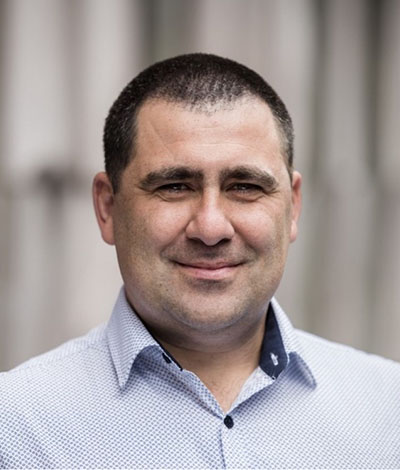 Eldar Rubinov is the PNT and Geodesy Technical Lead at FrontierSI, a not-for-profit research organisation in Australia. He holds a Bachelor’s degree in Geomatic Engineering and a PhD in high-precision GNSS positioning from the University of Melbourne. Before joining FrontierSI, Eldar worked in various industry roles, eventually taking on the role of Technical Manager for the Australian and New Zealand SBAS Testbed.
Eldar Rubinov is the PNT and Geodesy Technical Lead at FrontierSI, a not-for-profit research organisation in Australia. He holds a Bachelor’s degree in Geomatic Engineering and a PhD in high-precision GNSS positioning from the University of Melbourne. Before joining FrontierSI, Eldar worked in various industry roles, eventually taking on the role of Technical Manager for the Australian and New Zealand SBAS Testbed.
He now leads the organisation’s PNT portfolio and is currently establishing PNT Labs, a dedicated testing and evaluation facility designed to assess the performance and resilience of navigation and timing technologies, including LEO PNT.
Talk Title: ESA’s LEO-PNT In Orbit Demonstration Mission and the Future
Rui Sarnadas, LEO-PNT Project Team
Abstract: Provision of position, navigation, and timing services via Low Earth orbit satellites (LEO-PNT) continues to be a worldwide trend in PNT, being one of the emerging topics of most interest by international providers, with both institutional and commercial opportunities arising worldwide. ESA’s LEO-PNT In-Orbit Demonstrator (IOD) mission aims at accelerating LEO-PNT from concept to demonstration through a fast-track in-orbit demonstration, supporting the development of enabling technologies, service demonstration, and preparation of added-value for potential future operational LEO-PNT systems.
Looking to the future, the LEO-PNT next phases target industrialisation and In-Orbit Validation towards an EU Institutional operational system while also supporting Commercial initiatives.
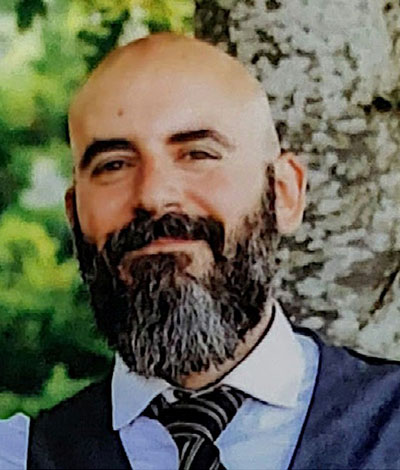 Rui Sarnadas has earned his degree in Electrotechnical Engineering from Instituto Superior Técnico in Lisbon, Portugal in 2004.
Rui Sarnadas has earned his degree in Electrotechnical Engineering from Instituto Superior Técnico in Lisbon, Portugal in 2004.
He has been working in Navigation systems and GNSS receivers and signal processing for several years, and since 2014 is working as Radio Navigation Engineer at the European Space Agency in ESTEC (Netherlands).
Talk Title: Precise Orbit Determination: A Requirement for LEO-PNT Systems
Amir Allahvirdi-Zadeh, School of Earth and Planetary Sciences (EPS) at Curtin University
Abstract: Precise orbit determination is an important part of any satellite-based navigation system.
In this talk, we will review the state-of-the-art precise orbit determination of small satellites, their challenges and limitations, and potential solutions for LEO-PNT constellations.
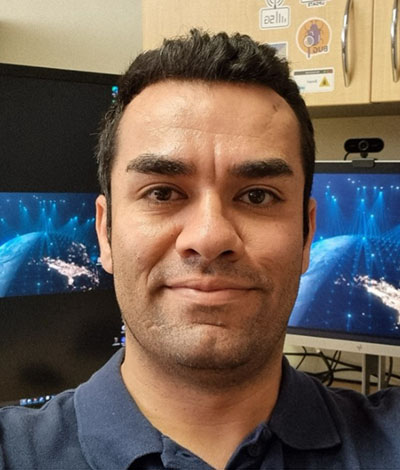 Dr. Amir Allahvirdi-Zadeha is a lecturer at Curtin University. He obtained his PhD in 2023 with a thesis on the precise orbit determination of CubeSats.
Dr. Amir Allahvirdi-Zadeha is a lecturer at Curtin University. He obtained his PhD in 2023 with a thesis on the precise orbit determination of CubeSats.
As a researcher in the GNSS-SPAN Group, his current work focuses on opportunistic positioning using broadband constellations, with particular insight into the orbital challenges these constellations face.
Talk Title: State Estimation in Navigation
Sanat K. Biswas, Assistant Professor at IIIT Delhi
Abstract: This lecture will focus on formulating navigation problems as state estimation problems and various solution strategies. Non-Bayesian and Bayesian approaches to state estimation will be introduced in the context of navigation. Subsequently, the least-squared estimation and various sequential estimators to address the non-linear dynamics of the states will be introduced.
Finally, the application of these methods in LEO satellite navigation will be discussed.
 Dr. Sanat K. Biswas is an Assistant Professor at IIIT Delhi. He received his B.E. degree from Jadavpur University in 2010, and his M.Tech. Degree in Aerospace Engineering from IIT Bombay in 2012, and the Ph.D. degree in computationally Efficient Unscented Kalman filters for space vehicle navigation from the University of New South Wales (UNSW), Sydney, in 2017.
Dr. Sanat K. Biswas is an Assistant Professor at IIIT Delhi. He received his B.E. degree from Jadavpur University in 2010, and his M.Tech. Degree in Aerospace Engineering from IIT Bombay in 2012, and the Ph.D. degree in computationally Efficient Unscented Kalman filters for space vehicle navigation from the University of New South Wales (UNSW), Sydney, in 2017.
At IIIT Delhi, he heads the Space Systems Laboratory and is involved in developing algorithms for Space Situational Awareness, NavIC reflectometry receiver for remote sensing applications, and Precise Point Positioning (PPP) of Low Earth Orbit Satellites. Dr. Biswas also leads the focus group on AI for space applications at the Infosys Centre for AI and has developed ML algorithms for GNSS satellite selection and for tracking space debris.
Dr. Biswas serves on the technical committee on Space Communications and Navigation (SCAN), and the technical committee on Space Traffic Management (STM) of the International Astronautical Federation.
He was the recipient of the 2014 Emerging Space Leaders Grant from the International Astronautical Federation, 2019 Early Career Research Award from the Department of Science and Technology, India, and Young Scientist Award 2020 and 2021 from the International Union of Radio Science (URSI) and 2020 Harry Rowe Mimno Award from the IEEE Aerospace and Electronic Systems Society.
Talk Title A Look at the Stars: LEO PNT with Uncooperative Satellites
Zaher M. Kassas, Ohio State University (OSU)
Abstract: We are witnessing a space renaissance. Tens of thousands of LEO satellites will be launched by the end of this decade. These planned megaconstellations of LEO satellites along with existing constellations will shower the Earth with a plethora of signals of opportunity, diverse in frequency and direction. These signals could be exploited for positioning, navigation, and timing (PNT).
This talk will overview the challenges associated with exploiting uncooperative LEO satellites for PNT, namely their unknown signals, poorly known ephemerides, loose synchronization and oscillator instability, and propagation effects. We will present an end-to-end approach, spanning theoretical modeling and analysis, specialized cognitive software-defined radio (SDR) design, practical PNT algorithms, and experimental demonstrations on ground and aerial vehicles, navigating with multi-constellation LEO satellite signals (Starlink, OneWeb, Orbcomm, Iridium, and NOAA) to an unprecedented level of accuracy.
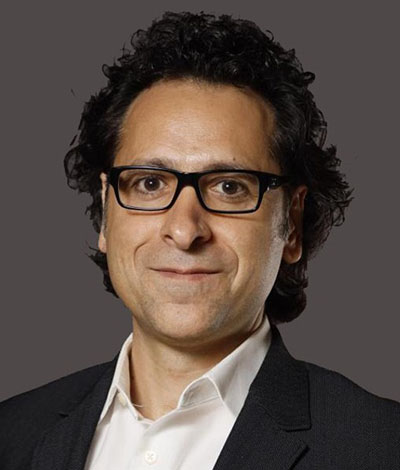 Dr. Zaher (Zak) M. Kassas is the TRC Endowed Chair in Intelligent Transportation Systems and a Professor in the Department of Electrical and Computer Engineering at The Ohio State University (OSU). He is the Director of the U.S. Department of Transportation Center: CARMEN (Center for Automated Vehicle Research with Multimodal AssurEd Navigation), focusing on navigation resiliency and security of highly automated transportation systems. He started his academic career in 2014 at the University of California, Riverside; then was an Associate Professor at University of California, Irvine; then was very early promoted to Full Professor and joined The Ohio State University in 2022.
Dr. Zaher (Zak) M. Kassas is the TRC Endowed Chair in Intelligent Transportation Systems and a Professor in the Department of Electrical and Computer Engineering at The Ohio State University (OSU). He is the Director of the U.S. Department of Transportation Center: CARMEN (Center for Automated Vehicle Research with Multimodal AssurEd Navigation), focusing on navigation resiliency and security of highly automated transportation systems. He started his academic career in 2014 at the University of California, Riverside; then was an Associate Professor at University of California, Irvine; then was very early promoted to Full Professor and joined The Ohio State University in 2022.
He received from President Biden the Presidential Early Career Award for Scientists and Engineers (PECASE), the highest honor bestowed by the U.S. government on outstanding scientists and engineers early in their careers. He is a Fellow of the IEEE, a Fellow of the Institute of Navigation (ION), and a Distinguished Lecturer of the IEEE Aerospace & Electronic Systems Society and the IEEE Intelligent Transportation Systems Society. He was ranked in 2024 by ScholarGPS as the top scholar in the world in the field of Navigation. His awards include the National Science Foundation (NSF) CAREER award, Office of Naval Research (ONR) Young Investigator Program (YIP) award, Air Force Office of Scientific Research (AFOSR) YIP award, IEEE Walter Fried Award, ION Samuel Burka Award, ION Col. Thomas Thurlow Award, IEEE Harry Rowe Mimno Award; and 35+ best paper and paper presentation awards.
Since starting his academic career, his research has attracted more than $27 million in competitive federal grants from ONR, NSF, AFOSR, DOT, NASA, NIST, Sandia National Laboratories, the Aerospace Corporation, among others. His research was featured in dozens of national and international media outlets (Science, BBC, Forbes, IEEE, ACM, Ars Technica, MIT Technology Review, among others) and appeared on 7 magazine covers. He has given 120+ invited presentations, keynotes, and plenaries, and served as a subject matter expert to DOD, GAO, DOT, and NSF. His research interests include navigation systems, low Earth orbit satellites, cognitive sensing and software-defined radio, intelligent transportation systems, autonomous vehicles, and cyber-physical systems.
Talk Title: Doppler Shift Based Opportunistic LEO-PNT With Starlink Signals
Winfried Stock, University of the Bundeswehr Munich Chair of Signal Processing
Abstract: Global Navigation Satellite Systems (GNSS) are fundamental to a wide range of applications, including industry, critical infrastructure, and military operations. In order to reduce the dependence on GNSS, great efforts have been made to investigate alternative Positioning, Navigation, and Timing (PNT) systems. The use of signals from Low Earth Orbit communications satellites as signals of opportunity for PNT (opportunistic LEO-PNT) is a promising approach for such an alternative PNT system.
This talk provides estimates of the achievable positioning accuracy for different concepts by which communication signals can be exploited for opportunistic LEO-PNT. It presents a systematic analysis of the dominant error sources affecting the positioning accuracy of a standalone, static opportunistic LEO-PNT receiver performing multi-epoch Doppler shift measurements on Starlink signals. A computationally efficient algorithm for extracting these measurements from the synchronization sequence of Starlink broadband signals will be introduced.
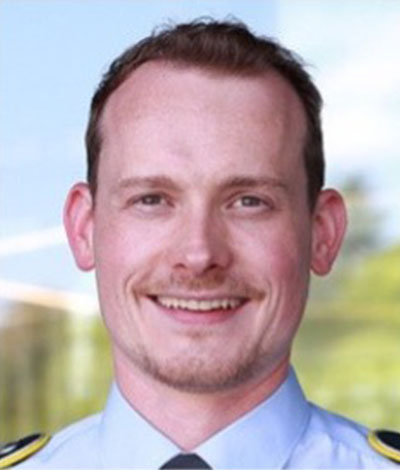
Winfried Stock is a Major in the German Armed Forces. He studied electrical engineering and information technology at the University of the Bundeswehr Munich, where he received his Master’s degree in 2016. After working in multiple positions in the Cyber and Information Domain Service, he rejoined the University of the Bundeswehr Munich as a research fellow in 2022. His main research interests are opportunistic navigation, sensing, and secure/anti-jam communications. In addition to his academic and military career, he is actively engaged in bridging the gap between research and practical applications as an entrepreneur.

